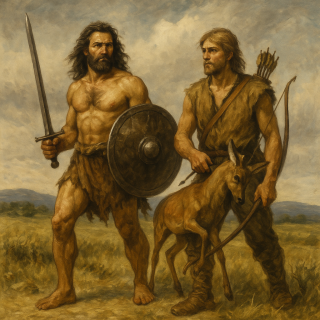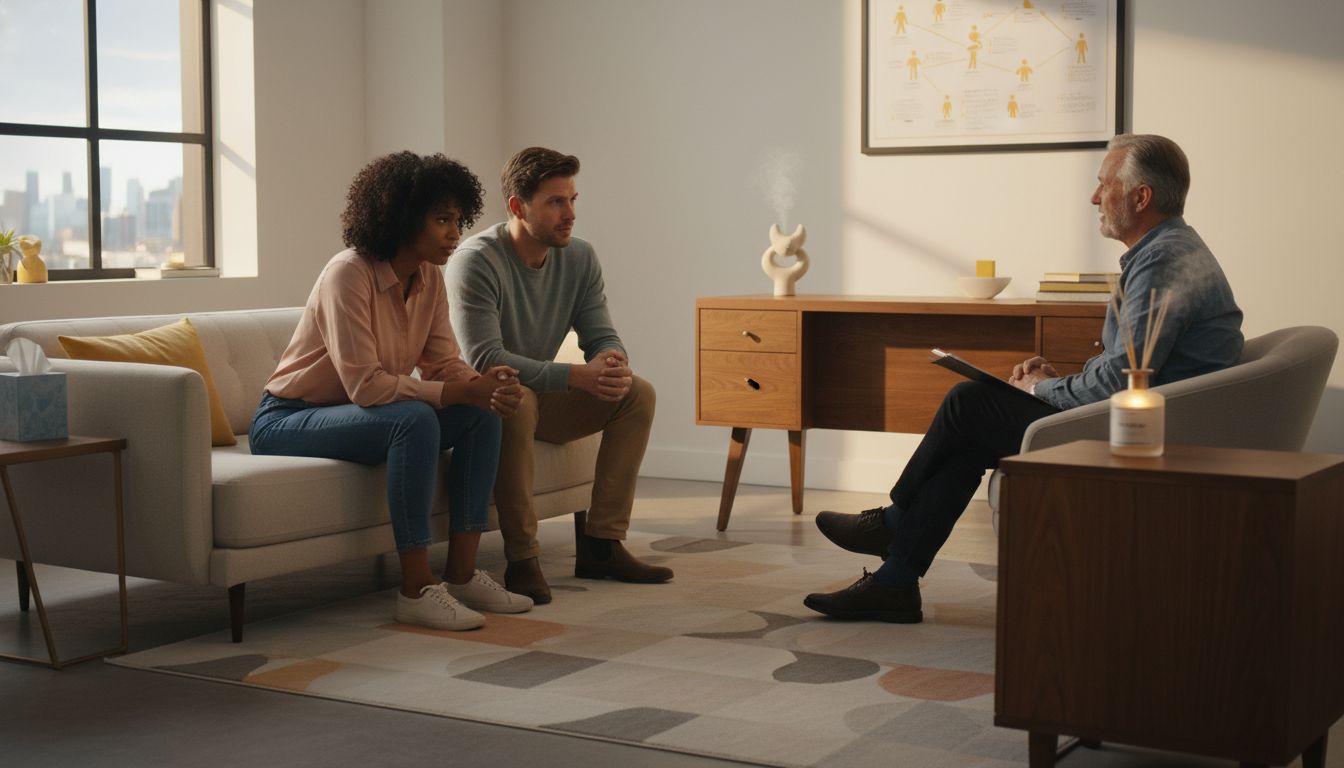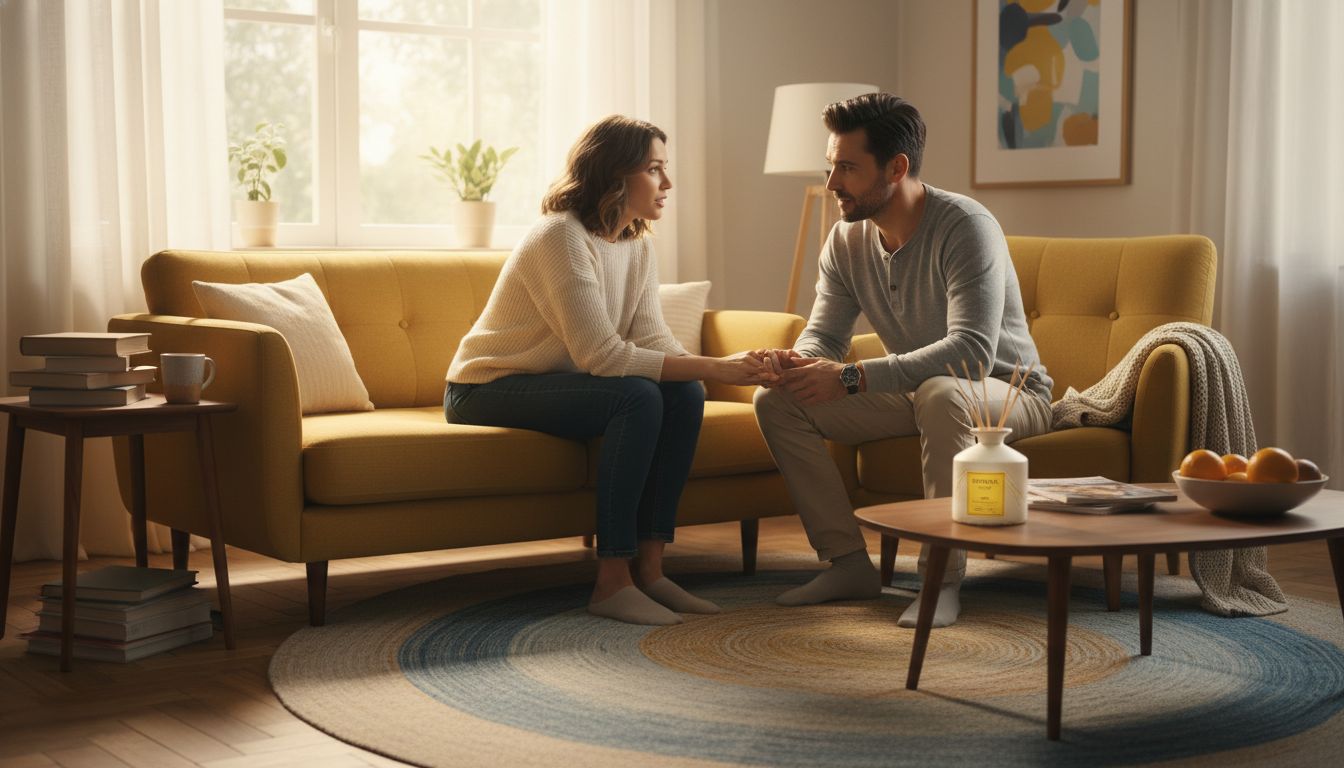WARRIOR ROLE MODEL
Activate the Warrior Archetype to
COMMAND RESPECT
“Warrior is the basic building block of masculine psychology, rooted in our genes. A warrior knows what he wants, and he knows how to get it. A sense of danger energises the man to take decisive action, to engage life, never withdraws from it. His actions become second nature.”
– from the book: King, Warrior, Magician, Lover by Moore and Gillette


Who is a Warrior?
Warriors are the people who work hard to achieve their goals, protect their boundaries, and fight for values such as justice and freedom. These are our soldiers, first responders, politicians, reporters, lawyers, businessmen, advocates, elite sportsmen, and hard-working men. Masculine traits which confirm and boost the Warrior are strength, courage, goal-orientation, assertiveness, action and risk-taking.
Each time you take on a challenge, you activate your Warrior.
The Warrior is the most obvious masculine role in a relationship. Evolution has shaped the kind of traits in men that are most needed for the mission of raising a family—protecting and providing. Research confirms that women in all cultures tend to seek the same kind of Warrior qualities in a potential partner: strength, confidence, status, assertiveness, and ambition.
The Warrior Husband: Command Respect
The warrior archetype is the cornerstone of masculine identity—and in marriage, it might be the difference between lasting connection and eventual divorce.
When your relationship falls into serious trouble, it’s often because the warrior archetype hasn’t been fully activated. The loss of respect toward a man is the strongest predictor of divorce. That respect is often directly tied to how well you embody the warrior archetype in daily life.
This masculine role isn’t just important—it’s essential. Evolution wired you with the traits of a warrior: strength, focus, confidence, assertiveness, ambition, and discipline. These traits weren’t built for ego. They were built to protect and provide.
The warrior archetype is not optional. It’s what your partner instinctively looks for in a man—especially when raising a family. During pregnancy, motherhood, and early childhood, your wife becomes more vulnerable. She needs your warrior energy to feel safe, both physically and emotionally.
Women across cultures and history have always sought warrior traits in a man. Even high-achieving, independent women desire a partner who can stand firm, assert himself, and move with purpose.
But here’s the challenge: modern men receive mixed signals. Society often attacks the very qualities that define the warrior archetype—dominance, competitiveness, emotional restraint. You’re told to tone it down, soften up, be less assertive. And yet your wife wants you to show up with power, direction, and conviction.
Who do you listen to? The world, or the woman who depends on your strength?
The truth is, most women don’t want a man who plays it safe. They want a man who acts with courage and purpose—a man who embodies the warrior archetype not by being aggressive, but by being grounded and capable.
Your wife may never use the words “warrior archetype,” but she’ll show you what she needs. She wants a man who can handle challenges, not hide from them. She wants to feel protected, emotionally and physically. That’s the warrior’s gift.
You don’t have to be a “nice guy” to be a good partner. You have to be good at being a man. The warrior archetype is not about aggression or cruelty. It’s about stepping up, standing firm, and being someone your family can rely on.
Even passionate feminists often expect their partners to man up—not in a toxic way, but in a way that reflects maturity, perseverance, and strength. When a man underperforms in his warrior archetype, it breeds contempt—and contempt is poison in a marriage.
The warrior archetype also includes protection on multiple levels. You may not be required to fight off invaders like in ancient times, but your family still faces real threats. Social threats from in-laws or critics. Emotional threats like fear, mood swings, or anxiety. And yes, sometimes your partner herself becomes the emotional source of that threat.
How does the warrior respond when the person he’s meant to protect becomes the one who challenges or attacks him? This is where most men fail—not because they’re weak, but because they don’t know how to respond without aggression or withdrawal.
Aggression leads to fear. Withdrawal leads to resentment. Neither of those reactions reflects the power of the warrior archetype. A true warrior stands his ground, contains the emotional storm, and commands respect without resorting to control or cowardice.
Your wife needs to know that you can stand up to her—not to overpower her, but to protect the emotional structure of the relationship. If she can dominate you, how can she trust you to protect her from real external threats?
Women may not always articulate this, but deep down, they resent dominating their men. It robs them of the feeling of safety and support. The warrior archetype corrects this imbalance and restores emotional polarity.
As the modern husband, your primary battlefield is emotional. Your greatest weapon is not force, but presence, assertiveness, and calm strength. The warrior archetype helps you set boundaries, take initiative, and deflect threats before they harm your marriage.
Remember, threats don’t always come from the outside. Often, it’s internal chaos—emotional volatility, reactivity, or fear—that poses the greatest danger to your family’s peace.
That’s why developing the warrior archetype isn’t about becoming a dictator. It’s about learning how to lead with clarity, protect with integrity, and provide with consistency.
When you wisely embody the warrior archetype, you become the man your wife can respect, your children can follow, and your household can depend on.
Respect is not given—it’s earned. The warrior archetype earns it through discipline, consistency, and courage. If your wife loses respect for you, the foundation of your marriage begins to crumble. But when she sees you standing tall, acting decisively, and facing challenges head-on, admiration grows.
The world may criticize masculine energy, but your family needs it. The warrior archetype is not about violence—it’s about responsibility. And your family, whether they say it or not, is counting on you to lead with strength.
If you want tools to help you activate the warrior archetype, stay tuned. This journey is just beginning—and your family’s future depends on the strength you’re willing to build today.
Click to listen to what she needs from you as a Warrior
I am a doer,
a go-getter,
a man of action,
a fighter,
a protector,
and a problem-fixer,
and I work hard to achieve my goals.
To accomplish goals,
to succeed on missions,
to fight for values such as family, nation, justice,
freedom, or my faith.
What do I need to do here?
How can I help?
What is the challenge?
What is the solution?
I act.
I take on challenges.
I solve problems.
I confront issues.
I assert boundaries.
Courage,
resilience,
action orientation,
decision-making,
endurance,
loyalty,
focus,
discipline,
commitment.
Imagine your child or wife is in danger. What you feel in your body is the energy of the Warrior—ready to act, focused, determined, and clear about what you are supposed to do.
Negative expressions of the Warrior role
Over-active
Workaholic
Risky behaviors
Suppressed vulnerability
Thinks in black and white
Perfectionist
With family, he might be combative, aggressive, and lack empathy.
Under-active
Passive
Avoids conflicts
The ‘nice guy’
Lazy
Neglects self
Undisciplined
Unmotivated
Weak
Dark side
Bully
Ruthless
Cruel
Corrupt
If you are curious to learn more click explore archetypes.
Warrior Wisdom

What Happens to You During Conflicts? A Powerful Guide
What happens to you during conflicts with your wife? Discover how ancient survival instincts shape your reactions, why you feel the urge to fight or withdraw, and how you can respond with awareness and compassion to build a stronger, more connected marriage.

What Men Need in a Relationship
Your needs matter too. Discover the 3 primal needs every husband must understand to feel fulfilled and connected at home. Most men don’t talk about these—but it’s time we do.

Why Many Men Avoid Counselling
Why Many Men Avoid Counselling stems from beliefs about strength and vulnerability. Traditional masculine roles stress emotion suppression and self-reliance, deterring help-seeking. Men often fear judgment, feel weak, or are uncertain about the process. Recognizing counseling as a strength and growth opportunity can overcome these barriers.
DAILY RELATIONSHIP WISDOM

Complete Guide to Intimacy from the Husband’s Side
Discover intimacy from the husband’s side: definitions, types, emotional roles, communication tips, and common hurdles in this comprehensive guide.

Rebuilding Trust as a Couple: Complete Guide
Rebuilding trust as a couple explained: stages of trust recovery, proven strategies, common pitfalls, and critical roles for lasting relationship repair.

Mastering Restoring Emotional Safety as a Wife
Complete guide to restoring emotional safety as a wife—learn what emotional safety means, how to rebuild trust, communication, empathy, boundaries and practical strategies for lasting security.

